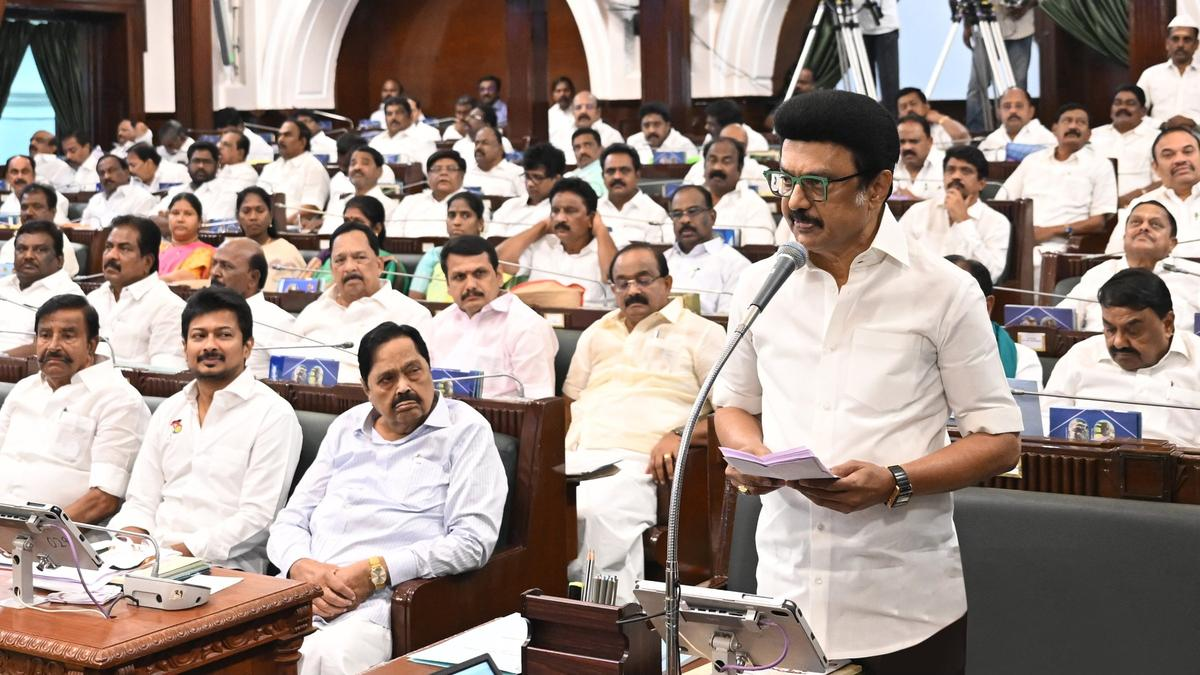





Copyright infringement not intended
Picture Courtesy: https://www.thehindu.com/business/Industry/why-has-india-been-accused-of-hosting-a-shadow-fleet-explained/article68780590.ece
India accused of hosting a "shadow fleet" to help Russia evade sanctions imposed by the West.
A shadow fleet consists of vessels that operate secretly to avoid detection and regulation. These ships often engage in activities that violate international sanctions, such as transporting oil from sanctioned countries like Iran, Venezuela, or Russia.
The real owners of the ships usually hide behind complicated corporate structures and shell companies.
To avoid detection, these ships regularly change their names, flags, and registration details, making it challenging for authorities to track them.
Many of these vessels lack insurance from reputable Western insurers, which raises concerns about their safety and adherence to environmental standards.
A significant number of these ships are older and not well-maintained, heightening the risk of accidents and potential environmental damage.
What are Sanctions?Sanctions are actions imposed by countries or international organizations, to restrict or penalize certain activities of other countries, entities, or individuals. They are used to achieve foreign policy and national security objectives without resorting to military action. Sanctions can include:
|
When the U.S. imposes sanctions on a country like Russia, it uses several tools to make sure these sanctions are followed. These include freezing bank accounts, seizing assets, and sometimes even filing criminal charges. In the case of Russian oil, the U.S. has set a price cap: Russia can only sell its oil for $60 a barrel or less. However, the market price is currently higher, which would allow Russia to make more money and use that to fund its war efforts in Ukraine.
|
Sanctions are penalties imposed by countries to influence the behavior of another nation. They are often used to address issues like aggression, human rights violations, or nuclear proliferation. Since Russia’s invasion of Ukraine in February 2022, many countries (including USA) have imposed extensive sanctions on Russia. |
The shipping industry is highly globalized, with different countries controlling different parts. For example, Greek companies own about 20% of the global shipping fleet, while China and Japan are also major players. Ships themselves are registered under "Flags of Convenience" (FoCs) to make it easier to hide the ownership and origin of ships and their cargo, especially when it comes to sanctions.
Flags of Convenience (FoCs)Flags of Convenience (FoCs) refer to the practice of registering a ship in a country other than that of the ship’s owners. This is done to benefit from more favorable regulations, lower taxes, and reduced labor costs.
|
To avoid getting caught in sanctions, ships change their flags or switch ownership. Some ships will register under countries that aren’t strict with shipping rules, like Eswatini. Some ships change their classification society (the agency that certifies whether the ship is safe to sail), which is difficult to trace.
Ships need insurance to operate, especially when they are transporting oil or other goods. A type of insurance called Protection and Indemnity (P&I) is key for covering losses. However, if a ship is caught breaking the sanctions, it might lose its insurance, to evade this, the ship owner quickly transfers the ship’s management to another company, allowing it to keep operating under the radar.
Protection and Indemnity (P&I) ClubsProtection and Indemnity (P&I) Clubs are mutual insurance associations that provide liability coverage to shipowners and operators. These clubs cover a wide range of third-party liabilities, including:
|
With the sanctions on Russia, many ships formed alliances with Indian companies, some shipping companies shifted their functions to Dubai; where Indian shipping business have a strong presence.
The Indian Register of Shipping (IRS), a classification society, also saw an increase in ships it was certifying, which raised concern. However, the IRS has defended itself, saying its job is to ensure the safety of ships and that it doesn't compromise on that. It also pointed out that none of the ships it certified flew the Russian flag, although some were linked to Dubai-based companies.
Indian Register of Shipping (IRS)It was established in 1975 under the Indian Companies Act based on the Mudaliar Committee’s recommendation. It sets standards for the construction, maintenance, and operation of ships, ensuring they meet safety and environmental regulations. It conducts surveys and provides technical certifications for maritime equipment and industrial installations. It assists in the development of India’s merchant marine industry and evaluates quality management systems. It has grown to become an internationally recognized classification society. |
Regulating the shipping industry is highly complicated, with different ownership structures and flag systems. Many ships hide their true ownership or the origins of their cargo.
Fully enforcing the sanctions could hurt the global economy, so countries like the U.K. have only taken mild action against companies that break the rules.
Experts agree that it’s nearly impossible to enforce these sanctions rigorously due to the complexity of the industry and its global nature.
Must Read Articles:
Source:
|
PRACTICE QUESTION Q.How the "shadow fleet" operate to bypass international sanctions? A) By sailing under the flag of sanctioned countries. B) By changing ownership frequently and sailing under flags of convenience. C) By operating only in territorial waters of non-sanctioning countries. D) By using military grade stealth technology. Answer: B Explanation: The "shadow fleet" depends on a series of clever tactics to evade international sanctions; constantly shifting the legal ownership of its ships, these changes, often on paper, create a complex web of owners that's difficult for authorities to find. Some vessels are registered under flags of convenience; they sail under the flag of a country with lax regulations and minimal supervision. |










© 2025 iasgyan. All right reserved